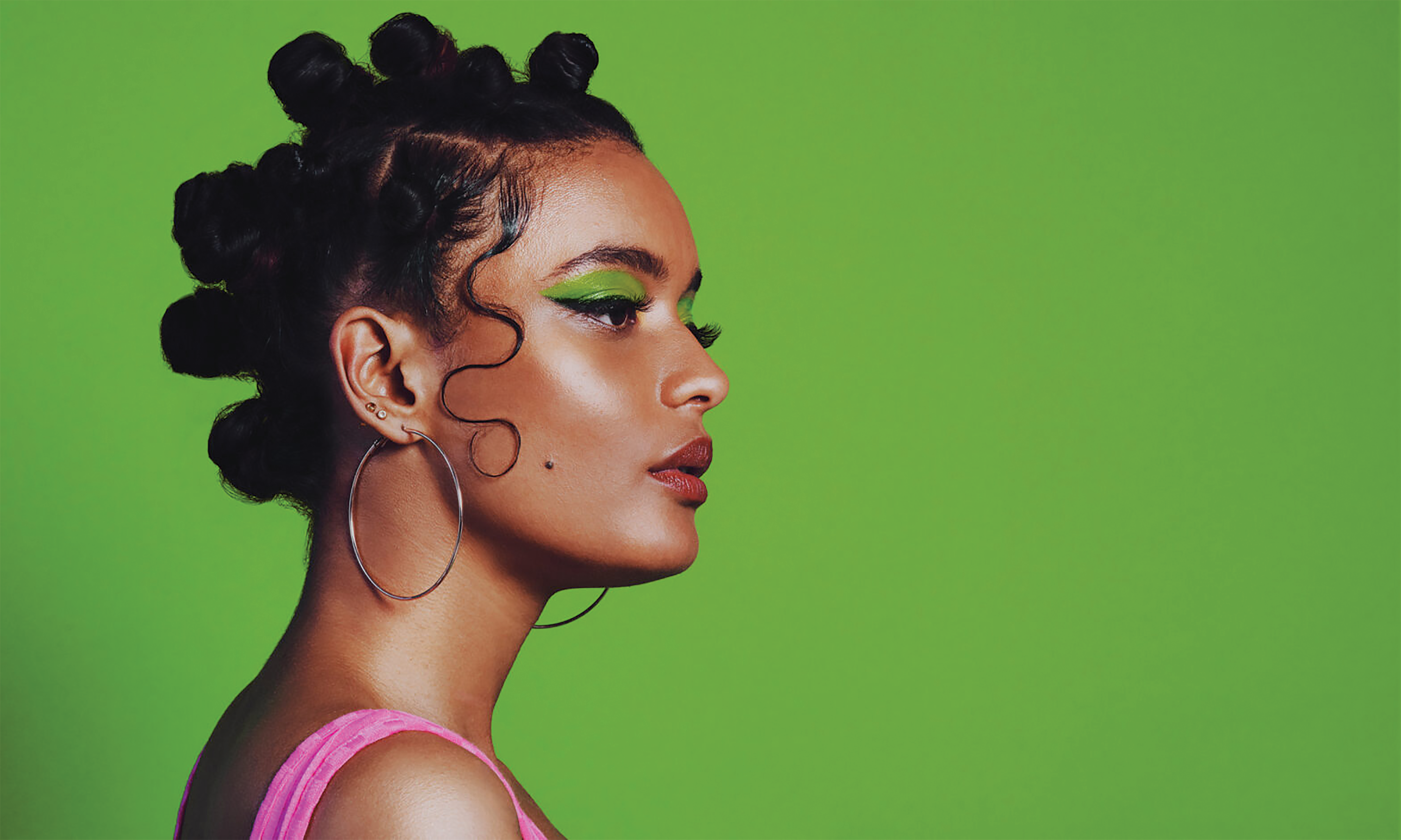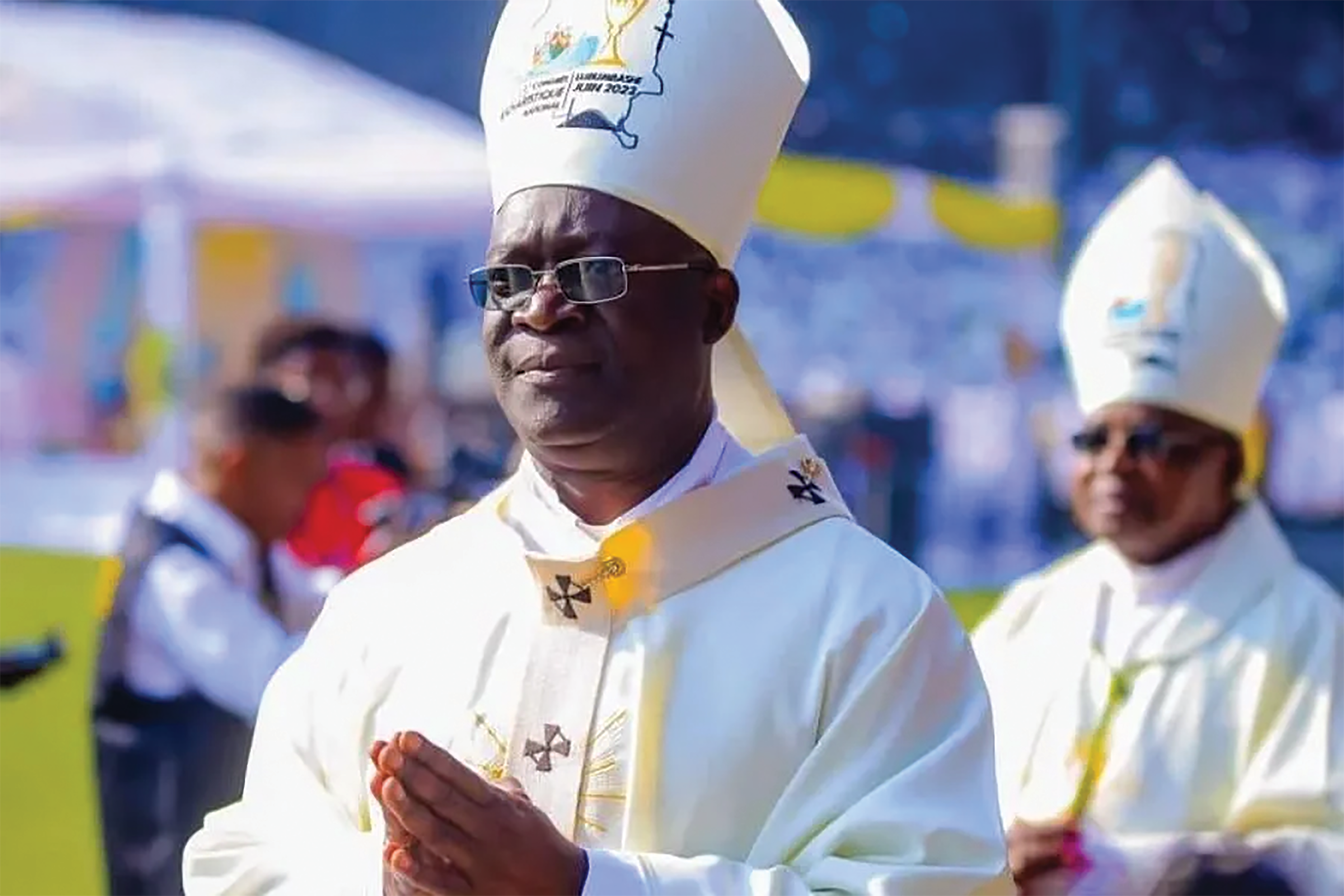GREED: The country’s natural resources monopolised ‘by rare gluttony of ruling elite and unscrupulous multinationals’ while Congolese languish in poverty…
By Jude Atemanke
The natives of the Democratic Republic of Congo (DRC) do not “sufficiently benefit” from the country’s immense wealth, the Catholic Archbishop of Lubumbashi in the Central African nation has said.
Archbishop Fulgence Muteba Mugalu ,who was speaking during the conclusion of DRC’s third National Eucharistic Congress, cautioned the Congolese people against despair amid challenging situations of their lives.
“The Congolese people, a tiny fraction of whom are taking part in this closing Eucharist of our third national congress, live on a territory endowed with immense natural wealth which, unfortunately, does not sufficiently benefit them,” Archbishop Muteba said during the June 11 closing Mass that was held at the TP Mazembe Stadium in Lubumbashi.
The Congolese Archbishop continued, “Whether we’re talking about copper and cobalt in Katanga, diamonds in the Kasai, timber in the Equatorial or customs revenues from the nine countries around us, the dividends of this immense wealth are being monopolized by the rare gluttony of a ruling elite and unscrupulous multinationals while the Congolese people who own it, languish in poverty.”
He went on to decry the lavish lifestyle of a section of politicians in the Central African nation amid the misery of ordinary people, which the Catholic Archbishop said continues to worsen amid a “general indifference of the managers of public affairs.”
Muteba acknowledged with appreciation the resilience of the Congolese people, urging them to “not despair”.
Making reference to the people of God in DRC, which is home to Africa’s largest Catholic population the Catholic Archbishop said, “Thanks to their Christian faith, they firmly believe in a better tomorrow. They are aware that their destiny is in their own hands.”
In his closing remarks during the Holy Mass, Muteba underscored the value of unity among the people of God in DRC.
“Our presence in this TP Mazembe stadium bears witness to our attachment to the unity of this great country blessed by God, which unfortunately continues to sink into disorder and misery,” he said.
The 60-year-old Archbishop continued, “Our people cherish unity and national cohesion.
The Catholic Church, to which the majority of these people belong, is the most eloquent symbol and the clearest sign of this country’s unshakeable unity”.
He added, “Anyone who tries to divide the country for political reasons will find the Congolese people in their path.” – ACI Africa

SOCIAL MEDIA PLATFORM IN KNOTS OVER ‘BANTU’ BLUNDER
BIAS: Canva Receives Backlash For Its App Labelling ‘Black Woman With Bantu Knots’ As ‘Unsafe’ In Search Results
By Ngozi Nwanji
There is a prevalent issue of racial bias within artificial intelligence (AI). However, a particular online company has been called out for its AI feature.
In November 2022, Canva, a graphic design platform, announced its image-generating app, Text to Image.
“We’ve invested heavily in safety measures that help the millions of people using our platform ‘be a good human’ and minimise the risk of our platform being used to produce unsafe content,” Canva shared in the announcement. “For Text to Image this includes automated reviews of input prompts for terms that might generate unsafe imagery, and of output images for a range of categories including adult content, hate, and abuse.”
What was initially presented as “safe, responsible and ethical technology” and a feature to “empower” Canva’s community has ruffled some feathers.
In a LinkedIn post, Adriele Parker, a DEI thought partner, shared that, while searching on Canva for a photo of a Black woman with a certain hairstyle, the results weren’t pleasant.
“I was playing around with Canva‘s text-to-image app and prompted it to generate a ‘Black woman with bantu knots’ and an error appeared telling me that ‘bantu may result in unsafe or offensive content,’” she wrote. “Tell me your AI team doesn’t have any Black women without telling me your AI team doesn’t have any Black women. My goodness.”
She added, “Canva, if you need a DEI consultant, give me a shout. I’ve been a fan of your platform for some time, but this is not it. Be the change. Please.”
Following Parker calling out Canva, fellow LinkedIn users chimed in about their negative experience using its Text to Image app.
In the post’s thread, one of Canva’s leads responded to the online backlash with the claim of a resolution.
“Yes, we’ve fixed this in Text to Image, and have raised the elements concerns with that team too,” Trust & Safety Product Lead at Canva Joël Kalmanowicz shared. “Thank you for flagging it, Adriele Parker. These are actually a great pair of examples of the balancing act we have: on the one hand, if the safeties over-trigger like in Text to Image, it can result in perceptions like you raise here. On the other, if the safeties *don’t* trigger, we can end up showing offensive results like in the element search you’ve also highlighted.”
He continued, “Of course, we do strive for simply not having offensive representations. That isn’t easy to do at scale and feedback like yours is crucial to helping us find things that slip through the gaps.”
* Ngozi Nwanji is a Nigerian-American journal ist, writer, and content creator from and based in Silver Spring, Maryland with a passion for storytelling, media representation, and music. Along with writing for AfroTech, she’s the founder of her own entertainment website, Z’s P.O.V — a platform for underrated music and Black creatives.





























